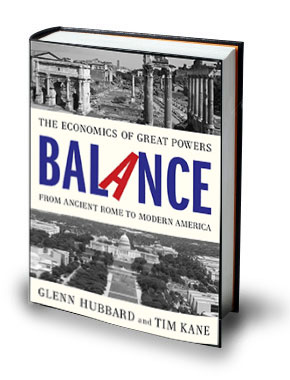 As a nation, we're swimming in a sea of red ink. To fix it, the president's deficit commission is recommending steep budget cuts and surprisingly, some incentives to encourage saving and investing. They might be on to something.
As a nation, we're swimming in a sea of red ink. To fix it, the president's deficit commission is recommending steep budget cuts and surprisingly, some incentives to encourage saving and investing. They might be on to something.
SUSIE GHARIB: As a nation, we're swimming in a sea of red ink. To fix it, the president's deficit commission is recommending steep budget cuts and surprisingly, some incentives to encourage saving and investing. Tonight's commentator thinks the commission is on to something. He's Glenn Hubbard, dean at Columbia University's graduate school of business and former chairman of the Council of Economic Advisers under President George W. Bush.
GLENN HUBBARD, DEAN, COLUMBIA GRADUATE SCHOOL OF BUSINESS: Given the furor from all sides, one would be tempted to think that the recent deficit reduction proposal from Erskine Bowles and Alan Simpson offers a good marker for debate. It does. We are in a difficult situation in large part because we have designed entitlements for a welfare state we can't afford. And we have used the tax code as a vehicle for special-purpose spending that weakens both the efficiency and fairness of our tax system. The nation`s economic and fiscal challenges require a refocusing of economic activity -- less reliance on current consumption and more on investment and exports. Accomplishing that shift requires a tax code that enhances incentives for saving and for investment in productive capital. With only a few flaws, the plan does that. The proposal takes a bold step: significantly reduce marginal tax rates for households. This cut in rates - - with salutary effects for work, saving, and investment - is made possible by limiting deductions and by taxing currently excluded employer-provided health care subsidies. The proposal would cut the high U.S. corporate income tax, a tax that holds back both investment and wages. The plan also lays bare the claim that cuts in marginal tax rates must be tax cuts for the rich. Limits on deductions and cutbacks in entitlement benefit generosity for upper-income households render the plan progressive and pro-growth. Two cheers for this marker - - President Obama? I'm Glenn Hubbard.







